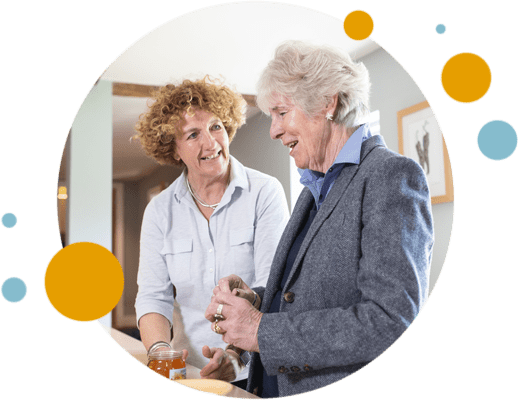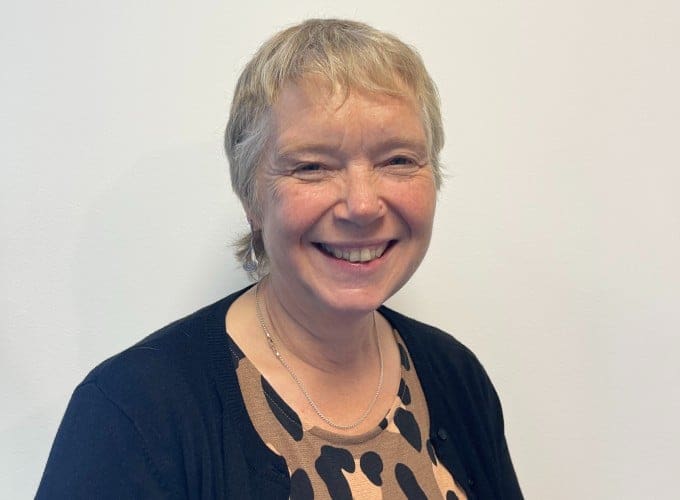What is the osteoporosis T-score?
As we grow older, we naturally start to lose some bone mineral density putting us at greater risk for developing health conditions like osteoporosis. This is especially true for people over the age of 50 or women after menopause.
A bone density test (DEXA scan) can help determine your risk of developing osteoporosis. It’s a short, painless procedure that takes only 10 to 20 minutes to complete.
Here is everything you need about the bone density scan including a simple guide on understanding your t-score results.

What is osteoporosis?
Osteoporosis is a condition that causes bones to become weak and brittle. Our bones are made up of living tissue that continuously breaks down and is replaced by our bodies throughout our entire lives. Osteoporosis occurs when our bodies cannot create new bones fast enough to keep up with this naturally occurring bone loss.
Osteoporosis is often called a ‘hidden’ disease because it is not painful. This means that it often remains undetected until a fall or impact causes a bone to break.
The most common injuries that result from osteoporosis are hip fractures, wrist fractures and fractures in the vertebrae (spinal bones). However, osteoporosis can cause fractures in any other bone in the body as well.
Osteoporosis is most commonly diagnosed in people between the ages of 50 and 90. Adult women are more likely to be diagnosed as they naturally have lighter and thinner bones and live on average longer than men.
T-scores explained
If your doctor suspects you have osteoporosis or you are part of a group that is at higher risk of developing the condition, they may recommend a bone density scan (DEXA scan). This is a short and painless procedure used to measure your bone strength
A bone density scan will measure your bone mineral density and compare it to that of a healthy young adult. This difference between your measurement and that of a young healthy adult is known as a ‘T score’.
The t-score is calculated as a standard deviation (SD) score. This measures the difference between your bone density and the expected value.
A t-score of 0 means that your bone density is equal to that of a healthy young adult. If your t-score is below zero, it means that your bone mineral density is decreasing putting you at an increased risk of breaks and fractures.
Guide to understanding T-scores
| T-score | Bone Mineral Density (BMD) | Fracture Risk |
| +1 to -1 | Healthy | Minimal |
| -1 to -2.5 | Osteopenia | Moderate |
| -2.5 to -3.0 | Osteoporosis | Elevated |
| -3.0 and lower | Severe osteoporosis | Maximum |
Who should have a bone density scan?
According to the NHS website, you may need a bone density scan if you are:
- Over 50 with a risk of developing osteoporosis
- Under 50 with other risk factors, such as smoking or a previous broken bone
Although a bone density scan provides a good indication of bone strength, it can not necessarily determine whether you will get a fracture. This is because other factors play a role in bone health such as your age, sex, and whether you’ve previously had another fracture.
Although osteoporosis can affect people of any age, postmenopausal women are particularly at risk. This is because oestrogen declines after menopause, resulting in a decrease in bone density.
Your doctor will consider all of your individual risk factors before deciding if a bone density scan or treatment is necessary.
How is a bone density scan performed?
The bone density scan is a short, painless procedure that takes on average 10 to 20 minutes to complete, depending on the part of the body being scanned. You will not need to enter a tunnel like the procedure for an MRI nor does it require any type of injection. No special preparations are needed before the exam.
Depending on the area of your body being scanned, you may be able to remain fully clothed or you may be asked to wear a gown. You will need to remove any clothing with metal fasteners such as zippers, hooks or buckles
During the scan, you will be asked to lie on your back on an x-ray table. As the procedure begins, a long scanning arm will pass over your body to get an accurate measurement of your bone density. You will need to lie very still to ensure the exam images do not come out blurry and prevent the machine from accurately measuring your bone density.
The scan will usually be carried out by a radiographer who is a specialist in taking X-ray images. You’ll be able to go home after your scan is completed.
Preventing osteoporosis
If you are at risk for developing osteoporosis, there are some lifestyle changes that you can make to keep your bones healthy. These include:
- Taking regular exercise
- Eating a healthy diet including foods that support bone health
- Quitting smoking
- Limiting alcohol consumption
- Taking a daily supplement containing 10 micrograms of vitamin D
‘Outstanding’ mobility care at home
Osteoporosis can put you at a greater risk for falls and reduce your general mobility and movement. If you require support with any aspect of daily living including safely mobilising around your home, our professional carers can help.
Mobility care enables a person to do as much as they can independently, with the right level of care and support. Our focus is on ensuring a person’s safety and wellbeing so that they can live a fulfilled and meaningful life.
Uniquely among live-in care providers, we have our own in-house Occupational Therapist, Jackie Cooper. Jackie will conduct a comprehensive assessment of your mobility needs.
Based on the results of her assessment, she can provide guidance and expert advice on the equipment that can help improve safe movement and mobility around your home, whilst minimising the risk of falls.
We are experts in providing fully-managed, high-quality live-in care. Our service is rated ‘Outstanding’ by the CQC in all five categories for being safe, effective, caring, well-led and responsive.
Call our friendly and approachable team to see how we can help you and your family.
Talk to us about your care needs
Call our team today – we are available 24/7 to take your call.
